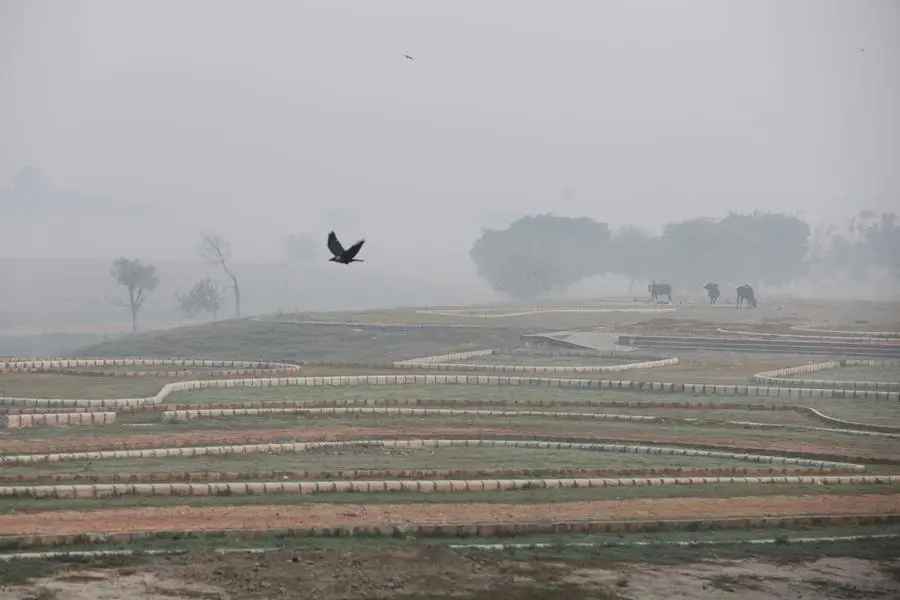PHOTO
India's Supreme Court ordered authorities in the states surrounding New Delhi on Tuesday to stop farmers burning crop residue, as the air quality from smog engulfing the world's most polluted capital during the past week reached hazardous levels.
Air quality dips every year ahead of winter, when calm and cold winds trap pollutants from sources including vehicles, industries, construction dust, and agricultural waste burning.
The court has issued similar orders in past years, with limited effect as state authorities report inability to control the burning despite fines and sometimes due to farmers' hostility towards officials.
Delhi has stopped local construction, closed primary schools till Nov. 10 and will impose restrictions on use of vehicles next week to fight pollution, but it wants its neighbouring states to control crop residue burning.
At 2 p.m. on Tuesday, the real time air quality index stood at 306, a level categorised as 'hazardous' by Swiss group IQAir.
"We direct the state government of Punjab and adjacent states to Delhi - Haryana, Rajasthan and Uttar Pradesh - to ensure that crop (residue) burning is stopped forthwith," Supreme Court judge Justice Sanjay Kishan Kaul said.
Farmers in Punjab and Haryana usually burn crop stubble left behind after rice is harvested in late October or early November to quickly clear their fields before planting wheat crops.
The practice has been followed for years and the resultant smoke has typically accounted for 30% to 40% of Delhi's October-November pollution, according to federal government's air-quality monitoring agency SAFAR.
The federal and state governments have been offering subsidies on better harvesting machines and stubble decomposers to support farmers and make them realise the dangers of the practice which has reduced over the years but is still a major issue.
Justice Kaul made the local police station in-charge responsible for ensuring that the court's directions are followed, under supervision of the states' chief secretary.
The court also suggested a gradual switch-over from rice crops, also called paddy, to less water intensive alternative crops. "The switch-over can only occur if the minimum support price is not granted for paddy but is given with an alternative crop - something which the (federal) government is already seeking to encourage," Justice Kaul said. (Editing by Simon Cameron-Moore)




















